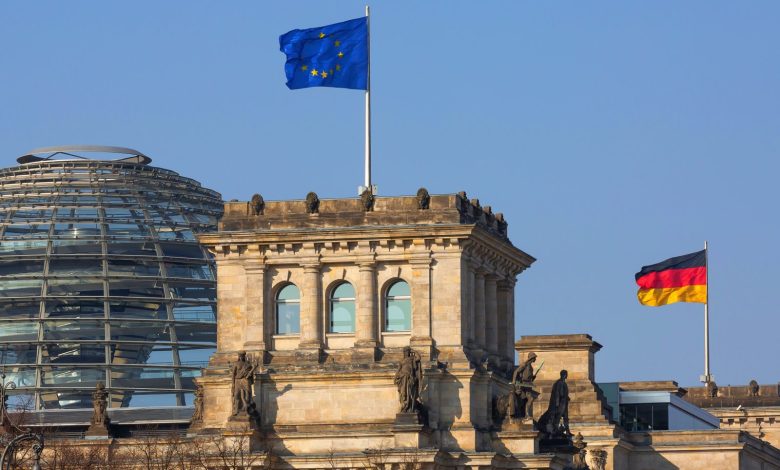Germany rejects possibility of normalization with Syria

Germany rejected the potential of normalizing relations with Syria, shortly after some EU countries called for revising the bloc’s strategy toward Damascus.
A recent letter by the EU states to the bloc’s foreign policy chief Josep Borrell “ultimately stimulates a reflection process to examine the effectiveness of the EU instruments in Syria policy. We are always open to the reflection process, so to speak …,” Foreign Ministry spokesperson Sebastian Fischer told a press briefing in Berlin on Monday.
“But what is also clear is that the Syrian regime is currently blocking any progress in the political process in accordance with U.N. Security Council Resolution 2254 and continues to commit the most serious human rights crimes against its own population on a daily basis and as long as this is the case, one cannot really strive for normalization of relations with the Syrian regime,” he added.
Last week, the foreign ministers of Austria, Croatia, Greek Cypriot administration, Czech Republic, Greece, Italy, Slovakia and Slovenia called on the bloc to “review and assess” its stance and policy towards Syria, where a civil war started in 2011.
They stressed that their “goal is a more active, outcome-driven and operational Syria policy.”
Stating that such a policy reform “would allow us to increase our political leverage [and] the effectiveness of our humanitarian assistance” in Syria, the foreign ministers proposed 10 areas – outlined in a separate informal document – that should be discussed “openly and without prejudice.”
Other areas for exploration are said to include a strategic exchange with Arab partners, further development of humanitarian mechanisms as part of the EU’s early recovery approach, the addressing of unintended negative effects of EU sanctions, and facilitating conditions for the return of refugees to Syria.
According to Austria’s Foreign Minister Alexander Schallenberg, one of the signatories of the letter, “we have to admit that our Syria policy has not aged well” after thirteen years of the ongoing conflict in Syria between Bashar Al-Assad and opposition groups.
“Bitter as it is, with the help of Iran and Russia, the Assad regime remains firmly in the saddle, the Syrian opposition is fragmented or in exile altogether – the European Union cannot turn a blind eye to this reality any longer,” Schallenberg said.






